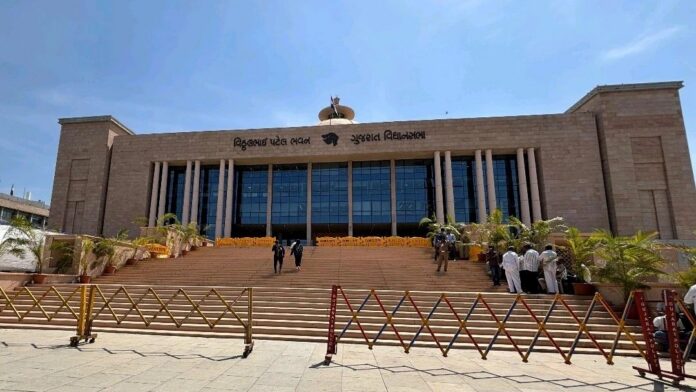The bill replaces court punishments with government-imposed fines for minor offences
Gandhinagar
The Gujarat Assembly passed the Gujarat Jan Vishwas (Amendment of Provisions) Bill, which aims to decriminalise certain minor offences and promote trust-based governance while improving ease of doing business in the state. The bill was passed through a majority voice vote, despite opposition from Congress and AAP.
The law replaces court-imposed punishments, including jail terms and fines, with government-imposed penalties for offences such as unauthorised construction, encroachment on public spaces, failure to remove filth, tying cattle in public areas, and defaulting on certain taxes. Other acts now attracting fines include discharging waste without permission, selling dairy products illegally, using steam whistles without a licence, loitering for prostitution, and obstructing authorised personnel.
Industries Minister Balvantsinh Rajput said the bill follows the Centre’s Jan Vishwas Bill and seeks to simplify rules, ease court workloads, and rationalise laws. It proposes amendments to 516 provisions across 11 acts, including the Gujarat Co-operative Societies Act, 1961, Gujarat Town Planning and Urban Development Act, 1976, and Gujarat Municipalities Act, 1963. One provision previously imposed jail, 17 allowed jail or fine, and 498 involved fines; these are now replaced with fixed penalties collected directly by the government.
Opposition parties criticised the bill. Congress demanded separate amendments for each law, while AAP MLA Gopal Italia claimed it benefits wrongdoers rather than citizens and urged a select committee review. He also argued it violated Article 20(2) of the Constitution, which prevents multiple prosecutions for the same offence.
Supporters say the bill will ease compliance, reduce legal burdens, and promote development, while critics warn that replacing legal action with penalties may reduce accountability for some offences.



